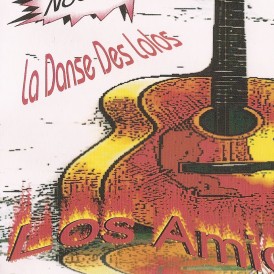Content
He said it did feel odd at first, but he overlooked it because he trusted Sandusky. When wrestling and playing, he would tickle them lower on the body, just brushing their private parts. But then it would stop, and they were off to the next amazing experience, the next toy or meal or trip. So when the grooming evolved into direct sexual abuse, no matter how uncomfortable the boys felt, most of them continued their contact with Sandusky.
For example, people with PTSD have more problems with alcohol both before and after they develop PTSD. Having PTSD increases the risk that you will develop a drinking problem. Also, drinking problems put people at risk for traumatic events that could lead to PTSD. Before you can understand how to control PTSD blackouts, you need to understand what’s causing them in the first place. You experienced a traumatic event that your brain has not fully processed. Your mind does not know how to react around certain sights, smells, sounds and other sensory factors that remind you of that event.
What to Expect from Ketamine Therapy Treatments
There were also a large number of individuals who were excluded for completing the survey too quickly. It is possible that these individuals may have differed from individuals who spent more than 25 minutes on the survey (e.g., greater psychopathology); therefore, it is a limitation that we did not compare those individuals we excluded. Last, we did not compare effect size differences between men and women in this study; therefore, we do not have a clear understanding on the exact sex differences in these meditational models. It is possible that for women, PTSD symptoms, especially “difficulty concentrating,” interferes with motivation to attend to tasks when distressed. For women struggling with intense negative affect who have difficulty conceiving and tracking even short-term goals, a pattern of risky alcohol use could develop due to the immediate relief it provides.

People who are drunk or blacked out are more likely to try illicit drugs than they would be sober. In a 2004 study published in the American Journal of Alcohol and Drug Abuse, only one out of 50 college students who had experienced a blackout said they blacked out after drinking beer alone. Temporary blackouts are probably due to temporary disruption of theta rhythm input to the hippocampus. Approximately 50 percent of college students who drink have experienced a blackout. As a result, some experience flashbacks and intrusive memories from war and use alcohol as coping mechanisms.
How to Handle and Prevent PTSD Blackouts
However, if you black out several times a month or have other warning signs of an addiction to alcohol, it may be time to consider treatment. Other studies have found using benzodiazepines such as Valium and Rohypnol alongside alcohol greatly increase the chances of a blackout. Abusing these drugs without alcohol can cause memory loss, but alcohol enhances the effects of the drugs. Research also indicates that smoking marijuana
while drinking increases the likelihood of blacking out.
- Whether the comorbidity between PTSD and AUD accompanies a neuroimmune profile that is predominantly proinflammatory in nature, and whether the added morbidity represents an aggravated proinflammatory state, remains unknown.
- PTSD is a mental health condition occurring in people after they have experienced a major traumatic event.
- Addiction to alcohol and PTSD (Post-Traumatic Stress Disorder) are very commonly present together as those who have experienced trauma often turn to alcohol to numb their pain.
- More than 50 percent of adults have blacked out at least once in their lives.
- An alcohol and PTSD blackout is an interval of time during which you cannot remember certain events while consuming alcohol and usually happens after binge drinking sessions related to reliving trauma.
A person who is blacked out may also throw up while sleeping, which could lead to an increased risk of choking or suffocating. If you or someone you love is experiencing blackouts regularly, it may be time to speak to a professional about getting some help. Contact Agape today to speak to an addiction specialist in a confidential environment, and create a personalized treatment plan that can be the foundation https://curiousmindmagazine.com/selecting-the-most-suitable-sober-house-for-addiction-recovery/ for lasting sobriety. While many people often use “blackout” and “passing out” in the same context, they are very different when it comes to what is happening with the body and brain. Passing out is a loss of consciousness, also called syncope, where the person loses all voluntary actions. When someone is passed out, they are unconscious, and cannot interact with their surroundings in any meaningful way.
Preventing an Alcohol Blackout
Patients satisfying either alcohol abuse and/or alcohol dependence criteria are together defined as having an alcohol use disorder. For elucidation of drinking pattern, we also used the Alcohol Use Disorder Identification Test (AUDIT) [43]. AUDIT is a 10-item questionnaire developed by the World Health Organization to easily screen for excessive drinking and to assist in brief interventions for alcohol-related problems [44]. This instrument has demonstrated reliability and validity in a similar setting to this study [45]. The conversion table available in the Nepali version of the CIDI questionnaire was used to calculate standard units of drinks in units of ethanol.
Can PTSD cause black and white thinking?
Black-and-white thinking is common to posttraumatic stress disorder (PTSD). When you are traumatized, especially repeatedly like in complex PTSD, you begin to believe that life is all good or all bad.





